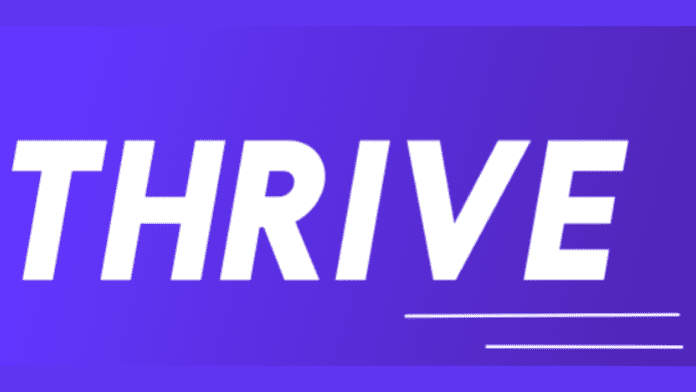Thrive, a foodtech platform, is disrupting the food delivery market by charging restaurants a commission of only 3%, which is significantly lower than the 25% or higher commission charged by other aggregators.
Swiggy and Zomato provide bundled offerings of restaurant listing and food delivery as aggregators, whereas Thrive is setting itself apart as a disruptor through its online promotion, third-party logistics integration, and customer data sharing.
Dhruv Dewan, the Co-founder of Thrive, has stated that the company will not allocate funds towards sales or marketing to entice new restaurants. Instead, the company will rely on organic reach and word of mouth. Thrive assists with online promotion and provides third-party logistics integration by collaborating with Wefast, Dunzo, Pidge, and Shadowfax in addition to offering software solutions. Restaurant proprietors can opt to pay the delivery expenses themselves or transfer them to the customer.
Swiggy and Zomato provide exceptional visibility to new restaurants, making it challenging for newcomers to establish a direct ordering channel through technology and social media tactics. The task at hand is to persuade restaurant proprietors to transition to SaaS enablers such as Thrive, which have restricted discoverability.
According to Dewan, Thrive should be regarded as a software enabler rather than a competitor to the current duopoly.
“We are still at an early stage, and I think it’s wrong to compare us to Zomato or Swiggy, who are category creators. We are not trying to break a duopoly but to help evolve food delivery tech in the country… we’re trying to create an ecosystem where restaurant owners can work with us to generate orders, and use that order data to also create their own brand,” said Dewan.
Swiggy and Zomato have a combined daily order volume of over 2.5 million, delivered by their own fleets. Thrive aims to transform this scenario by offering the essential technology for food delivery operations as a SaaS solution to restaurants. This would enable greater control over pricing, promotional offers, and discounts, rather than being limited by the platform’s restrictions. Restaurant proprietors, who have been unable to identify loyal customers due to the lack of data or insights into their patrons while ordering from Swiggy and Zomato, would welcome this change.
Thrive’s proposal as a SaaS enabler for restaurants has drawn strategic investors from the food and beverage industry, which is something that neither Swiggy nor Zomato has accomplished. Recently, Coca-Cola India invested in Thrive, acquiring 15% equity as part of a fundraise that concluded last week. Before that, Jubilant FoodWorks, the owner of Dominos India, invested $2.5 million in Thrive, obtaining 35% equity.
The pandemic has heavily impacted restaurants, causing them to heavily rely on two aggregators for generating revenue. Despite the increase in dine-in customers, online delivery remains a significant source of income for both new and established restaurants. According to Dewan, it has become incredibly challenging for restaurants to remain operational without the support of food delivery aggregators.
“Especially, if the restaurant owner is looking to create a large brand then in order to generate demand and visibility he will have to rely on third parties,” Dewan said.
ThriveNow offers CRM-related solutions that allow restaurant owners to access valuable information about their customer base, raw material usage, unit economics, and other key metrics. By utilizing these insights, restaurant owners can effectively grow their businesses.
Thrive provides each of its restaurant outlets with a unique direct order link, which can be promoted by the restaurant owner through social media and other mediums to attract potential customers. Initially, when Thrive launched its food delivery operations in late 2021, most businesses using the direct order channel were high-end or upscale brands. However, this trend is evolving as more affordable brands are now joining the platform.
“We launched in August 2021 with just 3,000 restaurant outlets, this has now grown to more than 14,000 currently across 80 cities. We have also completed more than 250,000 orders to date, processing a GMV of over INR 30 crore for restaurants,” added Dewan.
“Even on the consumer-facing delivery app, we’ve been able to organically attract users without paying acquisition costs, and I think going forward it’s more of a chicken-and-egg problem for us. As we scale the consumer demand, we expect more restaurants to join us, and as more restaurants come in, we expect more consumers to sign up as well,” Dewan added.
It is anticipated that the online food delivery industry in India will experience significant growth, with a projected Compound Annual Growth Rate (CAGR) of approximately 35%, reaching a Gross Merchandise Value (GMV) of around $18 billion and contributing to approximately 18% of total food services by FY25. This growth will be primarily driven by an increase in the number of users, which is expected to rise from 20 million to 60 million.
The Federation of Hotel & Restaurant Associations of India reports that although there are currently seven million branded restaurants in India, the larger market potential exists within the unorganized segment, which encompasses 23 million food outlets.





